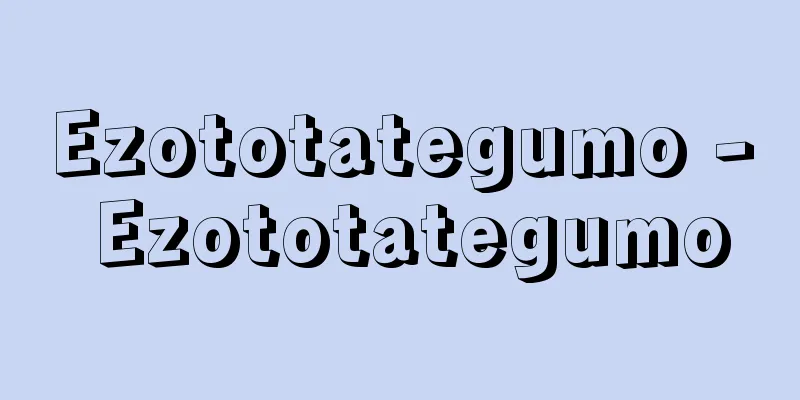Economies of (to) scale

|
The profits generated by expanding the scale of factory equipment or companies. In factories that use fixed equipment and companies that produce industrial products, costs can be saved by expanding the scale of production, and profits tend to increase. Since expanding the scale is advantageous for companies, monopolies tend to develop in such markets. Economies of scale are classified into the following two types based on the factors that create them. [1] Economies of scale for factory equipment Fixed equipment such as machinery cannot be divided into smaller pieces for use, and equipment of a certain scale must be installed from the beginning, which entails large fixed costs. Therefore, the larger the scale, the more the fixed costs are spread out, and the cost per unit of product tends to be lower. In addition, in large factories, it is possible to save costs and increase productivity by specializing and training workers in specific tasks, rather than having one worker do many different jobs. Furthermore, expanding the scale of the factory will make it possible to introduce new types of machinery that have not been used before. In this way, economies of scale can be achieved through the specialization and division of labor of workers, as well as technological factors. The movement of average costs in this case is shown in below. The scale at which average costs are minimal (the scale corresponding to MN in ) is called the optimal scale, with point M being the minimum optimal scale and point N being the maximum optimal scale. Until this optimal scale is reached, average costs decrease as production volume increases, so it is more advantageous for companies to produce in large quantities. This is also called the "economy of mass production." [2] Economies of scale (or scope) Large companies, even if they do not have large-scale factory facilities, can achieve economies of scale through the following factors: (1) production of related products in bulk, (2) bulk purchase of raw materials etc. (enabling buyers to purchase at favorable prices), (3) nationwide advertising, (4) efficient research and development, (5) mass sales of products (allowing for savings on transportation costs), (6) financial factors (large companies can raise funds on favorable terms), etc. Economies based on such factors are also called "economies of scope." These two types of economies of scale allow a company to save costs by expanding its scale. Also, if there is enough demand for a product, economies of scale can allow a single company to monopolize the market. This type of monopoly is called a natural monopoly. It is often seen in the case of electricity, gas, and railroads, which are usually public utilities and regulated by the government. Regarding economies of scale, a distinction is made between internal economies resulting from factors within a company, such as the size of the factory or company, and external economies resulting from the size of the entire industry or the entire national economy outside the company. Examples of external economies include cost savings due to the development of related companies that supply machinery and raw materials, reductions in transportation costs due to the regional concentration of industry and the development and expansion of transportation facilities, and cost savings due to the improvement of location conditions. [Toshiyuki Uchijima] "Price Theory" by Kenichi Imai, Hirofumi Uzawa, Ryutaro Komiya, Takashi Negishi, and Yasuaki Murakami, 3 volumes (1971-72, Iwanami Shoten) [Reference] |©Shogakukan "> Economies of scale (movement of average cost) [Diagram] Source: Shogakukan Encyclopedia Nipponica About Encyclopedia Nipponica Information | Legend |
|
工場設備や企業の規模が拡大することによって生み出される利得のこと。固定設備を使用する工場や、工業製品を生産する企業では、生産の規模を拡大することにより費用が節約され、収益が逓増する傾向がみられる。規模の拡大は企業にとって有利なので、このような市場では独占化が進みやすい。規模の経済は、それを生み出す要因から次の二つのタイプに分類される。 〔1〕工場設備規模の経済性 機械設備などの固定設備は細かく分割して使用することは不可能であり、ある一定規模の設備を最初から設置しなければならず、その固定費用も大きい。したがって、規模を大きくすれば、それだけ固定費用は拡散され、製品1単位当りの費用も低くなる傾向がある。また大工場では、1人の労働者を多種の職務につかせることなく、特定の仕事に専門化し、熟練させることにより、費用を節約したり生産性を高めることができる。さらに、工場規模の拡大により、これまでと違う新しいタイプの機械の導入も可能となろう。このように労働者の専門化・分業、ならびに技術的要因によって規模の経済が実現可能となる。この場合の平均費用の動きを示すとのようになる。平均費用が最小となる規模(のMNに対応する規模)を最適規模とよび、点Mが最小最適規模、点Nが最大最適規模である。この最適規模に至るまでは、生産量の増大とともに平均費用が低下するので、企業にとっては大量に生産するほど有利である。これを「大量生産の経済」ともよぶ。 〔2〕企業規模(あるいは範囲)の経済性 大企業は、たとえ大規模な工場設備をもっていないとしても、次のような要因によって規模の経済を実現しうる。(1)関連製品の一括生産、(2)原材料などの大量購入(買い手に有利な価格での購入が可能)、(3)全国的規模での広告、(4)研究開発の効率化、(5)製品の大量販売(輸送費の節約が可能)、(6)金融的要因(大企業は資金調達を有利な条件でできる)、などである。このような要因に基づく経済性は「範囲の経済性」economies of scopeともよばれる。 以上の二つのタイプの規模の経済によって、企業は規模を拡大することにより費用の節約を図ることができる。また、生産物に対する需要が十分にある場合には、規模の経済によってその市場が一企業により独占される場合がある。このようなタイプの独占は自然独占natural monopolyとよばれる。電力、ガス、鉄道のケースなどでよくみられ、通常は公益企業として政府の規制下にある。 なお、規模の経済については、上述のような工場規模ないし企業規模など企業内部の要因から生ずる内部経済と、企業の外部の産業全体または国の経済全体の規模によって生ずる外部経済とが区別される。外部経済の例としては、機械や原材料を供給する関連企業の発達による費用の節約、産業の地域的集中や交通運輸機関の発達・拡充などによる輸送費の低下、立地条件の整備による費用の節約、などがあげられる。 [内島敏之] 『今井賢一・宇沢弘文・小宮隆太郎・根岸隆・村上泰亮著『価格理論』全3冊(1971~72・岩波書店)』 [参照項目] |©Shogakukan"> 規模の経済(平均費用の動き)〔図〕 出典 小学館 日本大百科全書(ニッポニカ)日本大百科全書(ニッポニカ)について 情報 | 凡例 |
>>: Giboshi Mushi (Gibojumushi) - Giboshi Mushi
Recommend
Elsner, JAF - Elsner
… [Romanticism period] In the 19th century, Polis...
Occitanie
…Secondly, the dialects of Auvergne, Limousin, Ga...
Ihou (Ihou)
〘Noun〙① A robe for morning wear in the color corre...
Domestic Work Handbook - Kanairo Dotecho
…In Japan, the Homework Law was finally enacted i...
Vienna Cathedral - Stephansdom, Wien
Vienna's cathedral, also known as St. Stephen&...
Kersey, J.
…Thus, the 17th century can be said to be the age...
Harbor News Association
...Abbreviation for Associated Press, it has the ...
Aluminosilicate glass - Alumino Glass
...Silica glass consisting only of SiO2 is the be...
Cashew apple
Cashew Floral Return It is juicy and can be eaten ...
Fisheye lens
〘Noun〙 (lens is lens) A type of photographic lens....
Ahmad Yasawi
...An Islamic mystical sect (tariqa) based in Y...
Muscle rigidity
A state of increased muscle tone. Rigidity can als...
《Ushiwaka Senningiri》
...The main focus was on making the reader follow...
Chemical explosion
...However, in general, it is often used to refer...
long-nosed squirrel
…the crowns of the teeth are small, and their che...






![Melville [island] - Melville](/upload/images/67cd016743413.webp)


